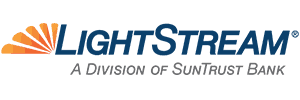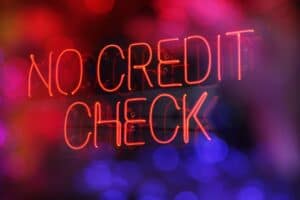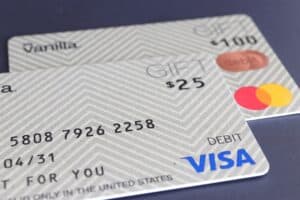Timeless Strategies for Debt Management
Discover how to achieve lasting financial freedom through smart planning and digital resources with proven debt management strategies.
PrimeRates provides access to personalized loan offers through our simple and quick pre-qualification application. Once you’re pre-qualified, you can select the best offer for you and finalize the loan application with the lender.
1
Simple pre-qual application in less than 1 minute.
2
Choose the offer that best fits your needs.
3
Finalize your loan offer, get approved, and receive funds.

Taking out a personal loan of $50,000 is a major financial commitment and should be pursued while keeping in mind budget constraints, income and annual percentage rates on offers. A loan of this size can help you carry out major home renovations and repairs, pay for a vehicle, and finance medical expenses or weddings. Because these loans are on the high end of personal loans, they often have higher income and credit score requirements and come with longer repayment terms than smaller loans.
Because a $50,000 loan is relatively large for a personal loan, most lenders are going to look for a high credit score of 680 or above. Some lenders will, however, accept borrowers with credit scores around 620, and some even lower. The higher your credit score is, the more likely you are to be approved for a loan with low rates and flexible repayment terms.
The difficulty of getting a $50,000 loan can depend on your qualifications. Most lenders have requirements that borrowers need to meet to qualify for a loan. Larger loan amounts can mean stricter requirements, especially for unsecured loans. Most personal loans are unsecured, meaning they don’t require collateral. Personal loans are usually based solely on creditworthiness. Therefore, an applicant with stellar credit, stable income, and a reasonable debt-to-income ratio may be more likely to receive a personal loan offer. Some lenders offer co-borrowers or co-signers to apply for the loan with the primary applicant to increase the chance of approval. When there’s a primary applicant and co-borrower or co-signer, the lender can assess both credit scores, income, and other details that can help them make a loan decision. One of the best ways to determine how hard it might be to get a $50,000 personal loan is to get pre-qualified. As we mentioned earlier, requirements can vary by lender. Therefore, you may have a better chance of qualifying with one lender as opposed to another. At PrimeRates, you can check offers from a network of lenders with various requirements with no credit score impact. In minutes, you can find the right loan offer or affirm you might need to do some prep work before being ready for a $50,000 personal loan.
A monthly payment on a $50,000 loan is dependent on the APR, or annual percentage rate of a loan, along with its repayment terms, which will typically be around two to seven years on a loan of this size. For example, if you take out a $50,000 loan with a 14.7% APR and a five-year repayment term, your minimum monthly payment will come out to $1,181.64.
Personal loans can help borrowers achieve any number of financial goals, from funding large life events such as weddings or surgeries to renovating the entire house. Borrowers should, however, only take out a personal loan if they’re not able to finance their projects using money out of pocket or other methods that don’t require taking out a loan with interest.
Interest rates are important to borrowers. After all, they can make a big impact on the monthly payment. Interest rates can vary, though, depending on the risk for the lender, the market, and other factors. Borrowing $50,000 without backing the loan with collateral can be rather risky for a lender, especially if the borrower is less than qualified. The best way to decide a good rate for a $50,000 loan is to check personalized offers. As we mentioned, rates can vary depending on the risk for the lender. Lender risk is heavily dependent on the applicant’s qualifications. As you compare offers, you should be able to identify what a good or fair rate is. While you can shop for information online, usually, the lowest possible rate is advertised. This can make it hard to understand what a good rate is that you actually qualify for.
Borrowing money may seem like a simple solution to getting the funds you need. While it can be – there’s more to consider. Borrowing money, especially in amounts of $50,000, can be costly. From interest rates to fees, it’s important to know the costs associated with a loan. The cost can help you decide whether the loan is worth it. It can also encourage you to pay the loan off as quickly as possible, assuming there are no prepayment penalties. As you compare loan offers, consider the following as they may impact the cost of the loan.
A personal loan is a good idea if you are not able to finance your goals with money out of pocket. When taking out a personal loan, make sure that even if you’re approved for a certain amount, that you are able to make timely monthly or weekly repayments.
Otherwise, fees can accrue, and at the worst, you can default on your loan, which will cost you more in the end and negatively impact your credit score. It’s also important to make sure that you need the entire amount that you’re borrowing because you’ll have to pay interest on each dollar that you take out.
Personal loans can help borrowers achieve any number of financial goals, from funding large life events such as weddings or surgeries to renovating the entire house. Borrowers should, however, only take out a personal loan if they’re not able to finance their projects using money out of pocket or other methods that don’t require taking out a loan with interest.
Some online lenders will approve you within as little as a few minutes, while some require a few business days to process your application. If you need a quick answer or fast cash, there are many lenders that can provide that for you and make your borrowing process relatively quick and easy.
Personal loans often come with much lower interest rates than credit cards, so if you know you need one lump sum, a personal loan can be the better option of the two. However, each method of financing depends on your personal needs.
If you’re looking to fund day-to-day or cyclical expenses, a credit card might be more ideal for you because you only pay interest on balances you carry over at the end of each billing cycle. However, if you have a major project to pay for and you know roughly how much it will cost, a personal loan will be the best option.
Paying off a personal loan early can be beneficial to your credit score. It can also show future lenders that you’re a reliable borrower who is capable of paying ahead of time. In addition to capability, it can demonstrate care for repaying the money you borrow. Credit scores factor utilization, the amount of revolving credit by the amount of credit available to you. Credit scores also consider how much debt a borrower owes. By paying off a personal loan early, you can improve both of these categories, which can also benefit your credit report. A closed or paid account can be positive for a borrower’s credit report regardless of whether it was paid early or not. The most important thing to focus on is on-time payments. Missing payments or being late on payments can negatively impact your credit score.
First, ask yourself what you need the money for? Next, ask yourself if you need the money? Loans can make sense whether you need the money or not, but assessing what you need the money for and how important it is can help you make important decisions. Another valuable way to determine if you need or if a loan makes sense is to check offers. At PrimeRates, you can find the right loan offer in minutes with no credit score impact. The flexibility to compare offers from just about anywhere can give you the space to think through the decision without distractions.
Requirements to qualify for a $50,000 personal loan can vary by lender. In addition, lenders may have varying requirements depending on the loan amount. Here are some requirements you might need to meet to qualify for a $50,000 personal loan.
Let’s take a look at some of the best lenders offering $50,000 loans for borrowers with all kinds of credit scores:
 |
|
| APR range | 9.99% — 35.99% |
| Available loan terms: | 2 – 7 years |
| Loan amounts: | $1,000 — $50,000 |
| Time to fund: | One day |
| Origination fee: | 2.9% – 8% |
| Credit score needed: | 620 |
| Income needed: | n/a |
| Soft Credit Check? | Yes |
| Best for: | Those with a steady income |
| Click “Check Rates” to apply to Upgrade
|
|
Pros:
Cons:
 |
|
| APR range | 7.80% – 35.99% |
| Available loan terms | 3 – 5 years |
| Loan amounts | $1,000 – $50,000 |
| Time to fund | One business day |
| Origination fee | 0% – 8% |
| Credit needed | 620+ |
| Income needed | N/A |
| Soft Credit Check? | Yes |
| Best for | New Borrowers, Borrowers With Thin Credit, Fair Credit |
| Click “Check Rates” to apply to Upstart
|
|
Pros
Cons
 |
|
| APR Range: | 6.99% — 25.49% with AutoPay |
| Loan Terms: | 2 to 7 years |
| Loan Amount: | $5,000 — $100,000 |
| Time to Funding: | As soon as same day |
| Credit Score: | 660+ |
| Income: | N/A |
| LightStream: | Read Our Review |
| Click “Check Rates” to apply to LightStream
|
|
Pros
Cons
Taking out a $50,000 loan can help you fund that dream home improvement project, handle major emergency expenses or make a large purchase. No matter what your reason for taking out a $50,000 personal loan is, however, it’s not a decision that should be taken lightly as it can take several years to pay off the entirety of the loan. Make sure to compare multiple lenders and offers to find the loan with the lowest annual percentage rate before making a final decision.
Discover how to achieve lasting financial freedom through smart planning and digital resources with proven debt management strategies.

Get approved for online loans today! Compare payday, personal, and bad credit loan options — even with no credit. Fast cash, secure process, trusted lenders.

Learn if no credit check loans are safe, understand their risks, and get tips to avoid costly mistakes. Make informed financial decisions with expert guidance.

Looking for personal loans for bad credit? Learn how to get approved, compare interest rates, and find lenders who work with lower credit scores.

Learn how to use visa gift card online with our complete guide. Follow step-by-step instructions to shop confidently and maximize your card’s value.

Want to buy someone the perfect gift this holiday season? Look no further than a gift card. Here’s a breakdown of different types of gift cards you can get.
